Daily Vocabulary Words: List of Daily Used Words in Leading Indian Newspapers
Hi there. Welcome to this special section @ Wordpandit. Our endeavour here is straightforward: highlighting daily vocabulary words that you would come across in leading newspapers in the country. We have included the following newspapers in our selection:
• The Times of India
• The Economic Times
• Hindustan Times
• Mint
• Indian Express
We are putting in extensive work to develop your vocabulary. All you have to do is be regular with this section and check out this post daily. This is your repository of commonly used words; essentially, we are posting a list of daily used words. Hence, this has significant practical application as it teaches you words that are commonly used in leading publications mentioned above.
Visit the website daily to learn words from leading Indian newspapers.
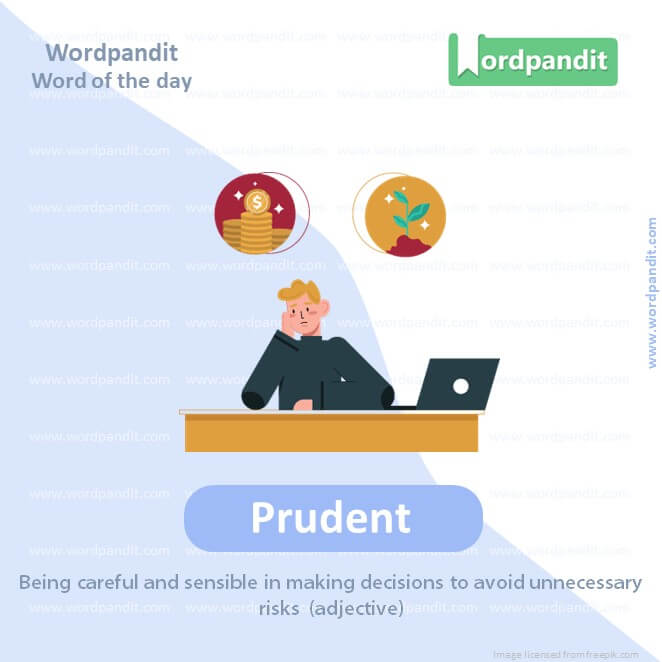
WORD-1: Prudent
CONTEXT: condemning Hamas is the morally right and the politically prudent thing to do.
SOURCE: Indian express
EXPLANATORY PARAGRAPH: Imagine you have a big box of cookies. If you eat all of them at once, you’ll have none left for later and might get a tummy ache. But if you think carefully and decide to eat just one or two cookies now and save the rest for later, you’re being careful and smart. That’s what it means to be prudent.
MEANING: Being careful and sensible in making decisions to avoid unnecessary risks (adjective).
PRONUNCIATION: PROO-dent
SYNONYMS: Wise, cautious, sensible, judicious, careful, thoughtful, sagacious, circumspect
USAGE EXAMPLES:
1. It is prudent to save some of your pocket money for later.
2. The prudent squirrel stored nuts for the winter.
3. Making a budget is a prudent way to manage money.
4. The doctor gave prudent advice to eat healthy and exercise regularly.
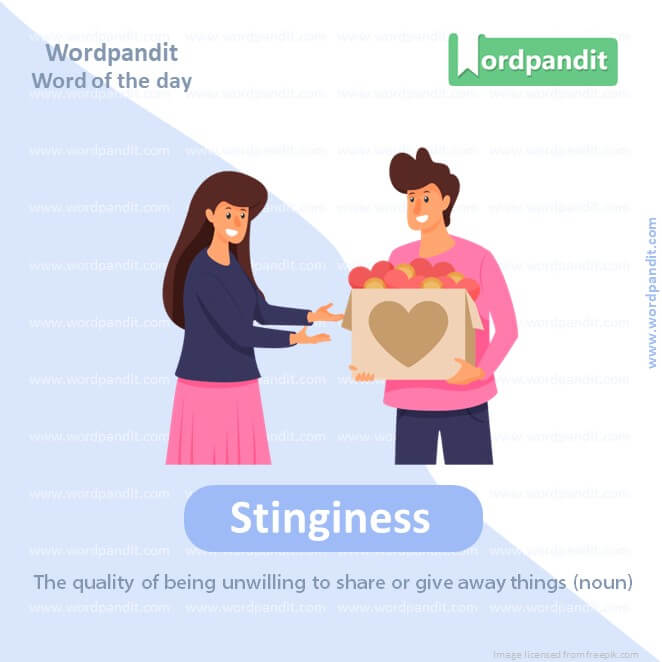
WORD-2: Stinginess
CONTEXT: the momentum and stubbed partnerships to such an extent, tamping down on the runs with such stinginess
SOURCE: Indian express
EXPLANATORY PARAGRAPH: Imagine your friend has a big bag of candy but doesn’t want to share any with you or anyone else. Your friend is being stingy. Stinginess means not wanting to share or give anything away, even if you have plenty.
MEANING: The quality of being unwilling to share or give away things (noun).
PRONUNCIATION: STIN-jee-ness
SYNONYMS: Miserliness, tightfistedness, greediness, parsimony, niggardliness, penuriousness, selfishness
USAGE EXAMPLES:
1. Her stinginess with her toys made her friends upset.
2. The man’s stinginess prevented him from donating to charity.
3. The old miser’s stinginess was well-known in the village.
4. Stinginess can prevent people from enjoying the joy of giving.
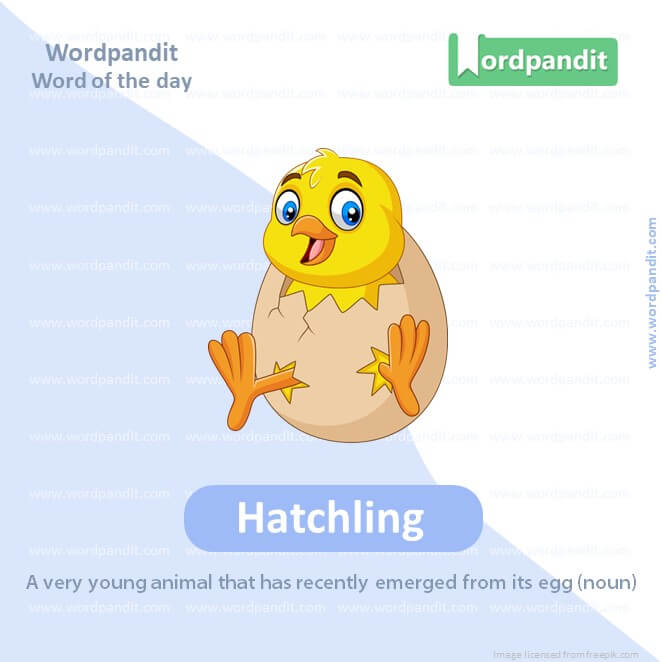
WORD-3: Hatchling
CONTEXT: the brunt of police as well as forest department investigations after a complaint was lodged by the civic body following the rescue of a hatchling
SOURCE: Times of india
EXPLANATORY PARAGRAPH: When a baby bird, turtle, or other animals come out of their eggs, we call them hatchlings. They’re tiny, new, and just starting to explore the world.
MEANING: A very young animal that has recently emerged from its egg (noun).
PRONUNCIATION: HATCH-ling
SYNONYMS: Chick, fledgling, nestling, newborn, baby, infant, juvenile
USAGE EXAMPLES:
1. The hatchling turtle made its way to the sea.
2. We watched as the hatchling birds chirped in their nest.
3. The children were excited to see a dinosaur hatchling in the movie.
4. The hatchling snakes slithered away quickly after emerging from the eggs.
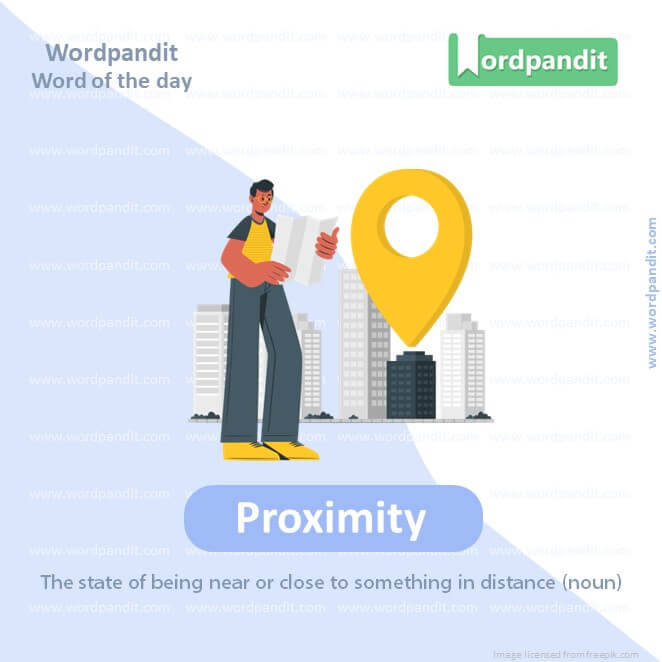
WORD-4: Proximity
CONTEXT: This is the fourth time that an animal has been rescued from the Dadar pool, fuelling BMC suspicions that the proximity of the privately owned zoo
SOURCE: Hindustan Times
EXPLANATORY PARAGRAPH: Proximity means how close one thing is to another. Like when you’re sitting very close to your best friend, you’re in close proximity to them.
MEANING: The state of being near or close to something in distance (noun).
PRONUNCIATION: prok-SIM-it-tee
SYNONYMS: Nearness, closeness, vicinity, adjacency, immediacy, propinquity, contiguity
USAGE EXAMPLES:
1. The proximity of the school to her home allowed her to walk there.
2. Because of their proximity, the two stores are always competing for customers.
3. The proximity of the forest means we can go for walks often.
4. Their houses were in close proximity, making it easy for the friends to meet.
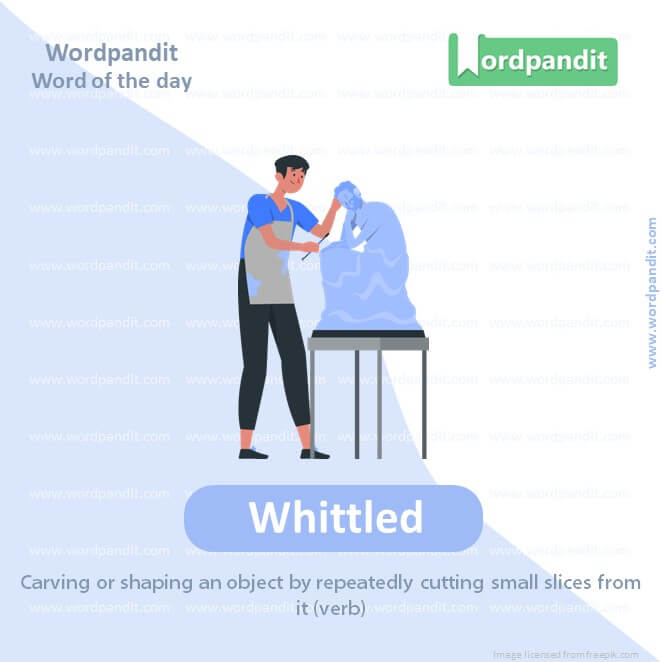
WORD-5: Whittled
CONTEXT: won five seats in its maiden Assembly elections in 2018 and whittled down Congress votes in other seats
SOURCE: Times of india
EXPLANATORY PARAGRAPH: Imagine you have a big piece of wood and you use a tool to slowly shave off small pieces from it, making it into a shape like a boat or a bird. That’s called whittling.
MEANING: Carving or shaping an object by repeatedly cutting small slices from it (verb).
PRONUNCIATION: WHIT-tld
SYNONYMS: Carve, pare, shave, trim, sculpt, shape, fashion
USAGE EXAMPLES:
1. He whittled a small boat from a block of wood.
2. Over the years, the river whittled the rocks into smooth pebbles.
3. She whittled the pencil down to a tiny stub while thinking.
4. The artist whittled intricate figures out of soap bars.
WORD-6: Anonymity
CONTEXT: The feature will provide the users with an additional layer of anonymity and is helpful for communication with people with whom you have not established trust till now.
SOURCE: Times of india
EXPLANATORY PARAGRAPH: Anonymity means that no one knows who you are. Like when you draw a picture and don’t put your name on it, so nobody knows that you made it.
MEANING: The state of being unknown or unacknowledged (noun).
PRONUNCIATION: an-uh-NIM-it-tee
SYNONYMS: Obscurity, namelessness, facelessness, incognita, invisibility, unknownness, unrecognizability
USAGE EXAMPLES:
1. The artist chose to donate the painting with anonymity.
2. Some people prefer anonymity when doing a good deed.
3. The website promises anonymity to its users.
4. Anonymity can sometimes protect a person’s privacy.
WORD-7: Resonates
CONTEXT: this feature will help the channel admins in identifying the content that resonates most effectively with the audience.
SOURCE: Hindustan Times
EXPLANATORY PARAGRAPH: When something resonates, it means it makes you feel something special or important. Like when you hear a song and it makes you feel happy or reminds you of something, that song resonates with you.
MEANING: To evoke a feeling of shared emotion or belief (verb).
PRONUNCIATION: REZ-uh-nates
SYNONYMS: Echoes, strikes a chord, reverberates, vibrates, touches, moves, impacts
USAGE EXAMPLES:
1. The story resonates with many people because it’s about friendship.
2. The speaker’s message resonates with the audience.
3. That song resonates with me and brings back memories.
4. The idea of freedom resonates in the hearts of people.
WORD-8: Voluminous
CONTEXT: They can also help you achieve different looks, from sleek and straight to curly and voluminous.
SOURCE: Hindustan Times
EXPLANATORY PARAGRAPH: Voluminous describes something that is very big, and has a lot of space inside or has many parts. Like a big, puffy dress that takes up lots of space is voluminous.
MEANING: Having a large volume, size, or number of parts (adjective).
PRONUNCIATION: vuh-LOO-muh-nus
SYNONYMS: Large, bulky, expansive, capacious, spacious, roomy, extensive
USAGE EXAMPLES:
1. She wore a voluminous gown to the ball.
2. The library had a voluminous collection of books.
3. The voluminous clouds filled the sky before the rain.
4. His voluminous hair always stood out in the crowd.
WORD-9: Wisecracking
CONTEXT: It was the ultimate hangout comedy and we were all supposed to want to be as witty, as wisecracking and let’s face it, as White as them.
SOURCE: Indian express
EXPLANATORY PARAGRAPH: Wisecracking means making funny and clever comments or jokes. Imagine someone who always has a funny thing to say to make people laugh; that person is wisecracking.
MEANING: Making quick and witty jokes or comments (verb).
PRONUNCIATION: WISE-crack-ing
SYNONYMS: Joking, jesting, quipping, bantering, making fun, ribbing, teasing
USAGE EXAMPLES:
1. The class clown was always wisecracking and making everyone laugh.
2. She lightened the mood by wisecracking about the situation.
3. His wisecracking personality made him popular at parties.
4. “Why did the chicken join a band?” he asked, wisecracking. “Because it had the drumsticks!”
WORD-10: Memoir
CONTEXT: In the foreword to his recent memoir Friends, Lovers and the Big Terrible Thing, co-star Lisa Kudrow says the first question people often ask about the series
SOURCE: Indian express
EXPLANATORY PARAGRAPH: A memoir is like a special book where someone tells stories about their own life. It’s like when grandma tells you about when she was a little girl, but instead of just talking, it’s written down in a book.
MEANING: A written record or account of one’s personal experiences and reflections (noun).
PRONUNCIATION: MEM-wahr
SYNONYMS: Autobiography, recollections, reminiscences, diary, journal, personal history, life story
USAGE EXAMPLES:
1. She wrote a memoir about her adventures traveling the world.
2. His memoir gives insight into the life of a professional athlete.
3. The actress’s memoir became a bestseller overnight.
4. Reading her memoir is like taking a journey through her past.
Vocabulary list
In navigating the seas of language learning, a ‘vocabulary list’ can often be a dependable guiding star. These collections of words serve as a focused learning tool, yet the technique of mastering a ‘vocabulary list’ effectively requires more than simple perusal. It calls for a smart, sustained approach that amalgamates understanding, memory, and application.
Exploring a ‘vocabulary list’ should be more than a one-way trip. It ought to be more like a round trip, wherein you learn the words, come back to review them, and then set out again for a new voyage. This repeated interactive way of exploring the ‘vocabulary list’ aids in solid memory retention and effective learning.
Next, while dealing with a ‘vocabulary list’, employing memory-boosting techniques can bolster your retention substantially. Here, mechanisms like spaced repetition systems and flashcards can simplify and streamline the process. Moreover, associating words on your ‘vocabulary list’ with visual cues or personal stories can help your brain make strong connections, strengthening your recall ability.
However, the most crucial aspect of learning from a ‘vocabulary list’ is active application. Conquering a list without using the words in real-world contexts might leave you with fleeting knowledge. Hence, make it a point to integrate these learnt words into your daily interactions, be it on social media, in email exchanges, or casual conversations. The regular utilization reinforces your understanding and brings the ‘vocabulary list’ to life.
Conclusively, the ‘vocabulary list’ is a treasure trove in a language learner’s quest, waiting to be unlocked strategically. Through the trinity of review, memory-enhancing techniques, and active application, one can master any ‘vocabulary list’. So, take charge of your learning journey and set sail with your ‘vocabulary list’, charting the vast and fascinating seas of language.













